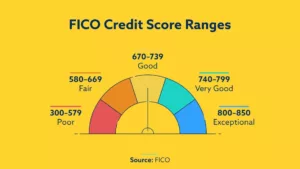Prospective home buyers may find 2022 their year to purchase a home before mortgage rates reach higher heights.
Economic recovery from the pandemic continues as well as an improving job market. But the reasons to buy a home in 2022 are primarily related to rising mortgage rates.
The longer you wait, the higher mortgage rates might rise.
Five reasons buying a home this year makes sense.
1. Mortgage rates are rising.
Rates remained low for the last several years; however, rates really plummeted to historic lows in 2020. But it appears as though the Feds will slowly raise mortgage rates over the next couple of years.
Mortgage rates are not expected to skyrocket overnight but since rates have gone up by a little more than 1 percentage point, some buyers are priced out of the market. It’s significant for those looking to save on their monthly payments if purchasing a more expensive home or refinancing to lower monthly payments.
2. Buying is still cheaper than renting.
In most states, it is cheaper to buy than it is to rent despite the rising home prices. According to real estate site Trulia, nationwide homebuyers who remain in their homes for seven years will save an average of 38% over renting.
The costs involved with buying a home like a broker’s commission, title insurance, legal fees, and other closing costs — will be offset by the benefits of homeownership.
Plus, the pandemic created new work-from-home policies which mean buyers have more flexibility to choose from a variety of different states, cities, municipalities, suburbs, and even rural areas to live. Technology, financial services, and insurance companies have invested in remote work tools with no indication they’ll be returning to the office.
And, more importantly, homeownership offers an opportunity for households to accumulate assets and build wealth. Nationally, the primary residence represents the largest asset category on the balance sheets of households.
Homeowners had a median net worth of $255,000 — more than 40 times the median net worth of renters ($6,300) according to the 2019 Survey of Consumer Finances, a triennial survey that collects detailed accounts of households’ finances.

3. Down payment assistance and grants available nationwide.
Down payment assistance programs or first-time homebuyer grants are available nationwide but it’s up to the homebuyer to research the specifics of programs in their state, city, or county. Down payment assistance programs vary by location, but it’s worth the time to research because many homebuyers could get thousands of dollars for a down payment if qualified.
It’s important to know that if you apply for down payment assistance, it may take longer to close on your home. Start early in your search for down payment assistance programs. These types of programs move at different speeds depending on demand and the size of the program.
The assistance program must work with your lender to secure the loan and the down payment funds. This can add time to the closing process, depending on how quickly the down payment assistance program acts.
4. FHA mortgage loans can qualify people with imperfect credit.
People with imperfect credit don’t have to miss out on historically low mortgage rates. There are no income limits when you apply for an FHA loan (Federal Housing Administration), and you might be able to qualify with a lower credit score and higher debt-to-income ratios.
FHA loans allow bad credit mortgage loans by only requiring a minimum FICO score of 500 with a 10% down payment — but be aware many lenders currently ask for a credit score of at least 620. For people with credit scores 580 or higher, FHA only requires a 3.5% down payment.
The good news is that FHA mortgage loans don’t require down payments to come solely from savings. Homebuyers can use gift money for the FHA down payment, so long as the donor provides a letter with their contact information, their relationship to the homebuyer, the amount of the gift, and a statement that no repayment is expected.
Down payment assistance programs or grants can also provide some of the required down payment for first-time homebuyers.
FHA loans cap down payment assistance at 6% for closing costs. For an FHA loan, you will have to put up some of your own money, but most down payment programs will work with FHA loans.
5. Home prices are slowly stabilizing.
Home prices in certain areas like Los Angeles remain a hot market but overall the pace of housing price growth is slowly cooling down. According to Redfin, pending home sales had their smallest year-over-year jump —17% in close to a year. Over 4% of homes for sale had price drops, and pending sales are down more than 10% from their 2021 peak. Homebuyers who were priced out of the market may have an opportunity to buy as prices stabilize.
Final tips on homebuying in 2022
- Competition is stiff in some areas so the first action to take is to find a good real estate agent. Don’t hesitate to interview several agents and request references. In hot real estate markets, you need experienced agents that will alert you to listings as soon as they hit the market, or preferably before they hit the market.
- Scan real estate sites often for new listings where you want to live. You will not only get a sense of what’s available but also get a list of pending sales as well as recently sold listings that will give you a sense of selling prices.
- Be flexible to accept a good enough home that may not be your “dream home.” Holding out for your dream home may not be an option in a hot market. The home you find may not necessarily be your forever home but you may need to find aspects where you can compromise and make upgrades.
- Line up your financing by comparing mortgage interest rates from several lenders, then get a mortgage preapproval letter. In hot real estate markets, you’re often competing with several cash-buyers willing to offer the asking price and above. A preapproval shows sellers that you’re serious and ready to buy.
Think about what’s most important to you now and close the deal.












